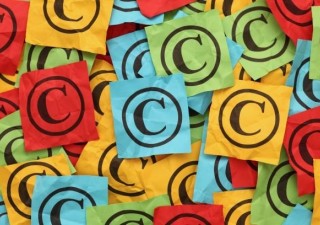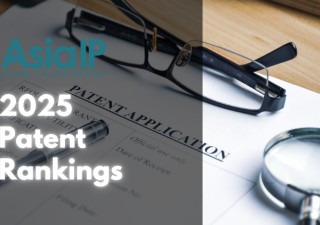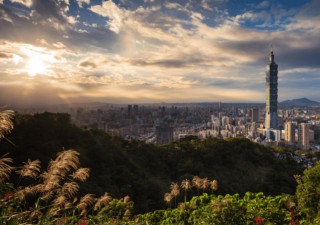As is known, Taiwan has had various miracles in the past. If we accept that the word “miracle” does not always have a positive meaning, Taiwan has had many more miracles including, for example, the one where former president Chen (now under detention) won the presidential election through the two-bullet event in 2004. By the same token, so far as IP matters are concerned, we have had many miracles.
Speaking positively, Taiwan always reaps not worse than the fifth place in the ranks of patent filers in the United States. Considering the populations, the territorial areas and the GDPs of larger countries in the world, such ranking represents that Taiwan is a well-, if not over-industrialized territory, or a wonderfully, if not extravagantly, IP-developed zone.
Another example for this positive image is that the Intellectual Property Office (IPO) is one of the few authorities having significant revenue, often subsidizing at least half of the fees for various IP seminars and classes it uses to disseminate the seeds of IP knowledge nationwide. As such, Taiwan shall be an IP power because a lot of nationals, especially IP-related persons, have been imparted with large amounts of knowledge about intellectual property.
It’s not all positive, though. The students of some private universities could use a patent certificate in place of a class report or to complete a course. If a patent certificate could be obtained only through hard work or laborious studies, such a school policy might be encouraging.
But such policy might be an educational disaster if the popular reality is that the so-called patent certificate is a utility model patent certificate which is automatically available after the utility model application is subject to merely a formality examination.
One of the hardships in Taiwan’s patent system comes from the officials of the IPO. The attitude to operate a business (or to adopt reforms) is a core factor in deciding whether the business (or patent system) runs well. For example, for submitting the proposed patent law amendment, the IPO held public hearings to gather good ideas or proposals to effectuate the amendments. However, the public hearings are simply formality-directed in that no (or only very few) suggestions would be adopted unless the proposer is intimate with the official in charge of the law amendments at the IPO or a council member of the current Taiwan (ROC) Branch of the Asia Patent Attorneys Association (TBAPAA). Such attitude deters possible valuable suggestions or proposals from practitioners since it could be reasonably concluded that no one would like to spend energy on raising a proposal which will be disregarded.
Another hardship in Taiwan’s IP environment is that securing better quality lawyers is a severe challenge for most of firms since they tend to cut fees in order to win opportunities to provide services, in view of the fact that the national patent filing volume in 2009 is estimated to have decreased by more than 10,000 cases compared to the 2008 volume. When income is reduced, it becomes difficult to continue operating the office or to keep or improve service quality. It has been heard that some firms can only survive by laying off some of their staff, which worsens the situation.
By the same token, to elevate the national professional level is not easy in view of the fact that it is commonly opined by some senior council members of TBAPAA that to run for election as a council member (or president) of the to-be-newly-established Taiwan (ROC) Patent Attorney Association (TPAA), an individual needs to donate NT$500,000 (or NT$2,000,000) (US$15,500 or US$62,000). The association may lack competent members to lead it since there would be extremely few lawyers who would like to voluntarily devote herself or himself to the reformation or the advancement of the patent system only after he or she donates such a sum.
There is a Chinese sarcastic saying that “wherever there is a relation, there will be not a problem,” where the two respectively italicized phrases could be translated into the same Chinese phrase “關係”.
Under the Chinese tradition, people tend to seek a position of serving as a (high) officer in the government after studying hard or making a lot of money. Since a real governmental officer might not be feasible, an officer in TPAA could otherwise serve such a role, which might be the reason why senior council members of TBAPAA tend to run the same positions of TPAA.
It appears that winning a position in TPAA might suggest that one has reaped a relation with the official in IPO.
We do not foresee that Taiwan patent system or its IP environment will soon get much better after the enactment of the Patent Attorney Act or the operation of the TPAA.
As a senior patent practitioner or firm, we frequently suffer basic troubles, such as clients not understanding how to really appreciate the quality of IP services or how to tell excellent quality work from poor work; social connections being more important than professional expertise in winning opportunities of services; successfully convincing clients that reasonable prices are doing everybody good; positioning the patent activities in a specific business or among various industrial sectors; or improving the role of the IPO so that the patent system could be run in a more positive, progressive, encouraging way.
Deep & Far
13th Fl., No. 27, Sec. 3,
Chung San N. Rd.
Taipei 104,
Taiwan, R.O.C.
T: +886 2 2585 6688
F: +886 2 25989900
E: email@deepnfar.com.tw
W: www.deepnfar.com.tw







